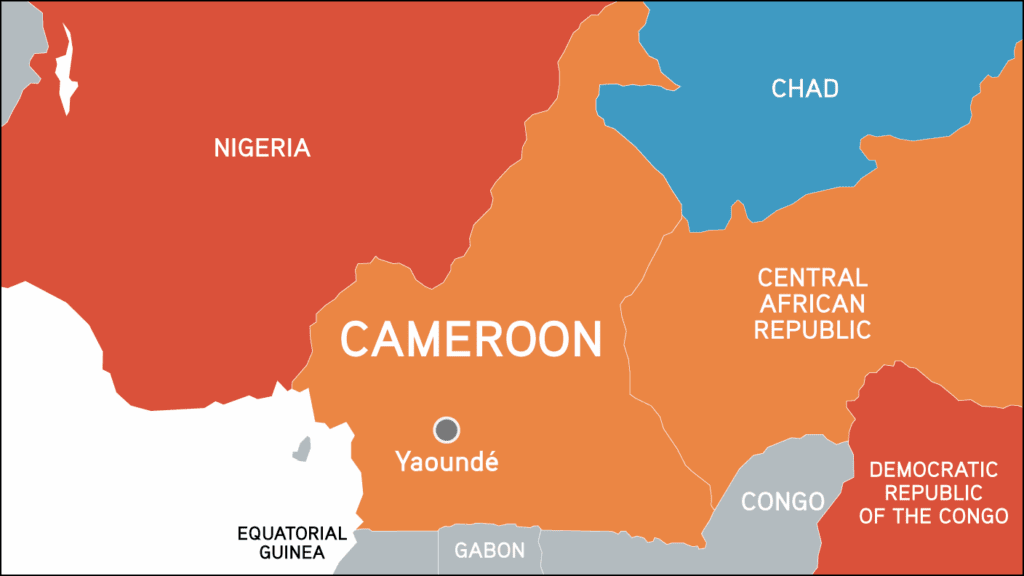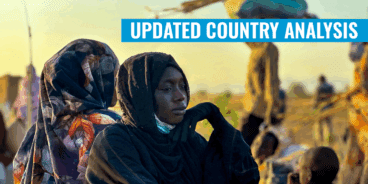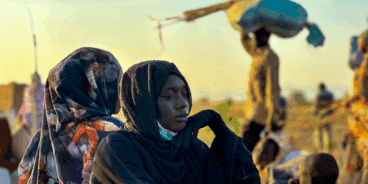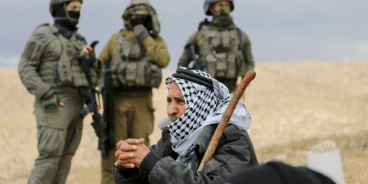Cameroon

Civilians in the Anglophone regions of Cameroon are at imminent risk of atrocity crimes due to continued violence between government forces and armed separatists. Armed extremist groups also pose an ongoing threat in the Far North region.
BACKGROUND:
In 2016 English-speaking lawyers, students and teachers in Cameroon began protesting their cultural marginalization by the Francophone-dominated government, leading to a violent crackdown by security forces in the north-west and south-west regions, an area predominantly inhabited by the country’s Anglophone minority. In October 2017 Anglophone separatists proclaimed independence and declared a new state of “Ambazonia” in the north-west and south-west regions. Since then, armed separatists and Cameroonian security forces have clashed, resulting in widespread atrocities against the civilian population. More than 6,500 people have been killed since 2016, though the actual numbers are believed to be higher.
Throughout the conflict, security forces have perpetrated extrajudicial killings and widespread sexual and gender-based violence, burned Anglophone villages and subjected individuals with suspected separatist ties to arbitrary detention, torture and ill-treatment. Armed separatists have also killed, kidnapped and terrorized populations while steadily asserting control over large parts of the Anglophone regions. Separatists and government forces have both perpetrated targeted attacks on health facilities and humanitarian workers, restricting the delivery of and access to vital aid and forcing various international humanitarian organizations to suspend their operations. Separatists have also banned government education and frequently attack, threaten and abduct students and teachers, as well as burn, destroy and loot schools.
According to the UN Office for the Coordination of Humanitarian Affairs (OCHA), more than 1.5 million people are in need of humanitarian assistance in the Anglophone regions. OCHA also estimates that at least 334,098 people have been internally displaced by violence in the two regions while more than 76,493 have fled to Nigeria.
Although deadly attacks by separatists have declined in recent years, the conflict remains unresolved. The government has consistently downplayed its severity and taken little meaningful action to end the violence or address its root causes.
The international community has also taken limited action. The Council of the European Union, the Committee on the Elimination of Racial Discrimination and others have appealed for an end to the violence and urged government action while additional actors have previously offered to serve as mediators. In May 2025 former President of South Africa, Thabo Mbeki, revealed that President Paul Biya rejected a mediation attempt by former African presidents aimed at resolving the crisis in the Anglophone regions. The UN Security Council (UNSC) has held only one meeting on Cameroon, an Arria-formula meeting on the humanitarian situation, in 2019.
RECENT DEVELOPMENTS:
Ongoing clashes between state government forces and separatist groups continue to impact civilians, who face threats, including stray bullets, arbitrary detention, targeted attacks, abductions for ransom, illegal taxation, roadblocks, extortion and restrictions on movement.
On 12 October Cameroon held presidential elections. The Constitutional Council officially declared President Biya the winner on 27 October, granting him an eighth term with 53.66 percent of the vote. Opposition parties and separatist groups, who have historically challenged the legitimacy of elections, rejected the process, citing systemic marginalization, restricted political freedoms and ongoing violence.
Ahead of the vote, separatist groups in the Anglophone regions imposed a month-long lockdown. These groups aimed to disrupt the electoral process and assert control over the north-west and south-west regions. Businesses, markets and schools were widely closed, while residents in cities like Buea and Limbe were forced indoors due to threats and violence from armed groups enforcing the restrictions.
In the weeks following the elections, political tensions intensified. Widespread protests erupted in major cities, particularly among supporters of opposition candidate Issa Tchiroma Bakary, as demonstrators accused the government of electoral fraud and demanded a fair count. Security forces killed at least 48 civilians and arrested more than 100 others, including opposition leaders. The majority of the victims were shot with live ammunition, while others succumbed to injuries inflicted by beatings with batons and sticks. The UN Human Rights Office has called for restraint and urged independent investigations into all cases of election-related violence following reports of killings, injuries and arrests since 25 October.
ANALYSIS:
The international community often perceives the conflict in the Anglophone region exclusively as an insurgency by armed separatist groups against the Cameroonian government. However, the situation is much more complex. Although the Anglophone and Francophone areas of Cameroon have been unified since 1961, there is a long history of disputes over the extent to which access to government resources is controlled by the French-speaking majority.
Civilian populations, particularly women and children, are disproportionately bearing the brunt of violence and face heightened risk of abuse and exploitation. The targeting of individuals based upon their cultural identity poses a direct threat to Anglophone civilians and may amount to war crimes and crimes against humanity. Ethnic communities are also often targeted for their alleged collaboration with either side of the conflict.
The conflict dynamics in the Anglophone regions have changed as the crisis has become increasingly financially lucrative, with separatist groups having expanded their sources of revenue through kidnapping and extortion. Armed separatist groups are increasingly disorganized and in competition with one another, making the situation – and possible pathways to peace – extremely challenging. The electoral process and outcomes underscore the persistent centralization of political power and the limited avenues for meaningful participation for opposition and Anglophone voices. The contestation surrounding the vote may exacerbate grievances in the Anglophone regions and could influence the intensity of separatist activity.
The risk of atrocities will continue if the root causes of the conflict, including poor quality of government services, weak governance and marginalization of parts of the population by a highly centralized state, remain unaddressed.
RISK ASSESSMENT:
-
-
- Past or present discriminatory, restrictive or exclusionary practices, policies or legislation against marginalized communities and persons belonging to minority groups.
- Politicization of identity, past events or motives to engage in violence.
- Increased fragmentation of armed groups posing a significant challenge to conflict termination and sustainable peace.
- Policy or practice of impunity for – or tolerance of – serious violations of International Human Rights Law (IHRL) and International Humanitarian Law (IHL), atrocity crimes or their incitement.
- A security sector that lacks professionalism and engages in violations of IHRL and IHL.
-
NECESSARY ACTION:
Security forces must end all extrajudicial killings of unarmed civilians and ensure that the human rights of all Cameroonians are equally protected, regardless of cultural identity. Security forces implicated in violations of IHL and IHRL should be investigated and held accountable. Armed separatist groups must halt attacks on civilians and civilian infrastructure. Safe and unfettered humanitarian access should be restored and guaranteed. Foreign governments and regional organizations should suspend all military assistance to Cameroon until its security forces have made demonstrable progress toward upholding the human rights of all Cameroonians. Civilian protection must be enhanced in the Far North region.
The government should address the historical marginalization and socio-economic exclusion of Anglophone communities through targeted development programs, equitable political representation and language rights protections. The government should hold an inclusive dialogue with parties to the Anglophone crisis, mediated by a neutral player on neutral territory.
The African Union and Economic Community of Central African States should work with the government to prevent further deterioration of the conflict. Efforts by the UN’s Regional Office for Central Africa, including good offices, must prioritize finding a political solution to the violence and encourage inclusive dialogue. The UNSC should discuss the situation in Cameroon and urge parties to the conflict to end hostilities and find a peaceful solution to the multifaceted crisis.
Atrocity Alert No. 359: Ethiopia, Haiti and Cameroon
Related Content

Populations at Risk, November 2025

